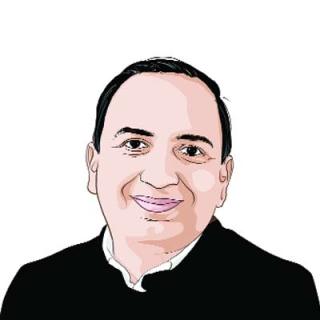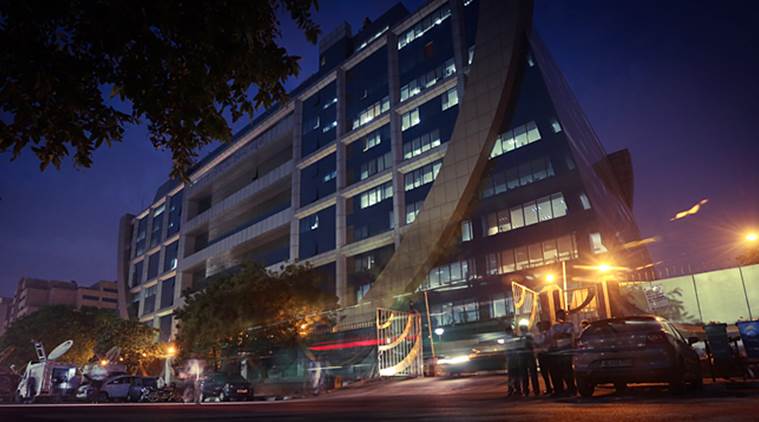Pratap Bhanu Mehta is vice-chancellor of Ashoka University. He was earlier president, Centre Policy Research, New Delhi, one of India's top think tanks. Before he started engaging with contemporary affairs, he taught political theory at Harvard, and briefly at JNU. He has written extensively on intellectual history, political theory, law, India's social transformation and world affairs. He is the recipient of the Infosys Prize, the Adisheshiah Prize and the Amartya Sen Prize

Written by Pratap Bhanu Mehta |Updated: November 22, 2018 7:18:35 am
No check, little balance
The war within the CBI threatens to diminish the credibility of many institutions.

The CBI headquarters in New Delhi. (Express Photo/Tashi Tobgyal
The crisis within the CBI is not simply a civil war within the CBI. It is a deep crisis of the Indian state that at one stroke destroys whatever shards of credibility it had left. This whole saga has the makings of an ominous tragedy. Not a single institution comes out looking good. The culpability for this mess has directly reached the door of the prime minister. It is truly astonishing that the political establishment does not even feel the need to publicly respond on a major crisis of its making. With the latest round of allegations — and they are only allegations at the moment — the national security establishment is now also going to be dragged into the muck.
Every aspect of this train of events is shocking. The spectacle comes to public attention because the top two officers of the CBI accuse each other of serious corruption. Whatever the truth of the charges, it is clear that every single check and balance within the system had broken down. The appointments process is clearly broken. Let’s for a moment, grant Rakesh Asthana the presumption of innocence. But common sense tells us that a government directly intervening to appoint a person to a senior and powerful position, with an integrity cloud hanging over their conduct, against the objections of other senior leadership within the organisation, looks extraordinarily bad. In senior leadership positions, the criteria is not simply that the candidate has not been convicted. It has to be someone who commands unimpeachable credibility.
The matter is brought to the attention of the Supreme Court. The logic of what the Court will subject to scrutiny and what it will let pass is as mysterious as God’s propensity to inflict suffering. It has no compunction directly intervening in an ongoing defence deal. But it did not bat an eyelid when its own directives to secure the independence of the CBI were being flouted. Indeed what this muck has exposed is the Court’s utter naiveté when it comes to the CBI. It has not secured its independence, as much as it has further empowered an organisation that has always been the handmaiden of political power. The Court’s modus operandi is opaque. Either this is a public trial or this is not. The Court is not some parliamentary select committee that can receive state secrets under sealed covers, giving selective access to some interested parties and not to others. The argument that the Court is trying to protect the credibility of the CBI is laughably besides the point. Is it really the Court’s business to shore up the credibility of another organ of the state, or is it to determine guilt or innocence? It is touching to see the Court batting more for the CBI’s credibility than the CBI itself.
Frankly, what the Supreme Court is doing seems more like an act of institutional powerplay on its part rather than something that conforms to canons of law or justice. It compounds its naiveté over the CBI with its naiveté over the CVC. Barely two weeks to submit a report? From an organisation about which one capable civil servant once quipped, “I know the organisation is vigilant. What it is vigilant about no one can tell.” Another eminent justice is appointed to look into the matter. The relationship between the CVC’s findings and the terms of reference of the honourable justice’s mandate are not clear. Does the Court trust the regular process of the state like the CVC? If it does, why do we need a judge? If it doesn’t, why do we need the CVC? Or will it trust the CVC if the judge conducting the inquiry and the CVC agree? But who will it trust if they disagree? The Supreme Court is trying to do the right thing. But there is no institutional logic to what it is doing.
Then comes the CBI itself: An institutional debacle of Shakespearean proportions, where you don’t know whether to laugh or to cry. The CBI is in a Catch 22 situation. Either the CBI has a lot of corrupt and guilty people. We now know because other CBI officers are saying so. Or if it does not, and this is merely a turf war as some are alleging, then the CBI has a lot of people who make other CBI officers look corrupt and guilty. Either way, the CBI’s credibility is doomed. And either way the citizens are left in the lurch. They are stuck with a corrupt organisation or an organisation that frames people. It is so touching to see CBI officers claiming to be victims or being framed by their fellow officers. If CBI officers don’t feel safe with their colleagues, imagine what it means for ordinary citizens?
Now another CBI officer has alleged that the National Security Advisor (NSA) directly interfered with the investigation. Allegations of this nature should be treated with all due caution; they can easily be used to derail honest men. I have no view on the Ajit Doval allegations. But even Doval should recognise that the government has created a mess of its own making. If mere allegations by CBI officers should not be enough to cast doubt on the integrity of high officials, why was the CBI director transferred summarily, without due process? Should the same yardstick be deployed for the NSA? After all, in this case, the CBI officer is prepared to go on record in the Court.
But there is an even deeper danger. As Shekhar Gupta pointed out in The Print on October 13, this government has brought about a tectonic shift in the relationship between the NSA and the rest of government. It has securitised all aspects of government by giving the NSA powers to summon practically anyone and side-lined conventional political and bureaucratic mechanisms that at least kept up the pretence of wider political and civil service accountability of the security state. So the stakes in the office of the NSA become even higher. Even apart from the current allegations, the empowering of the NSA should be a matter of concern. But with these lines blurred, should Doval be held to the same yardstick by the prime minister that he wanted to hold Alok Verma to, and that he refused to hold Asthana to prior to his appointment? The stench of arbitrariness is now inescapable. But don’t worry: Indian institutions are resilient. We will learn to hold our noses against this stench even tighter.
The writer is vice-chancellor of Ashoka University. Views are personal






































No hay comentarios:
Publicar un comentario